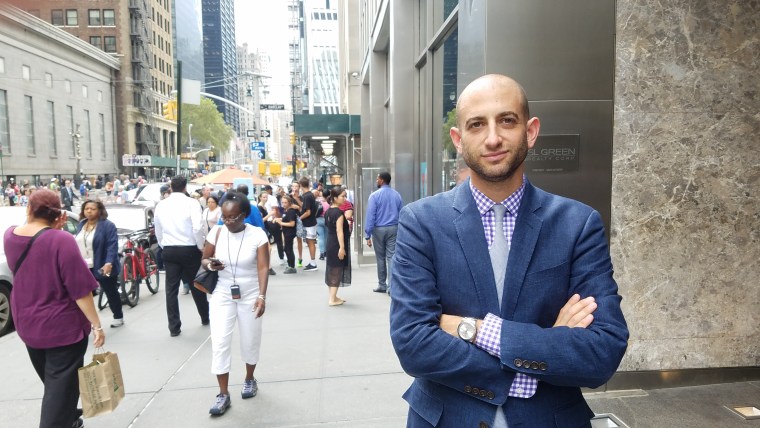Lower Manhattan, the neighborhood that was home to the Twin Towers and which endured the brunt of the Sept. 11, 2001, terrorist attacks, has spent the last decade and a half in a state of healing and recovery. Today that process appears to be paying off.
It hasn't been easy. According to data provided by the Alliance for Downtown New York, 90 percent of Lower Manhattan stores saw revenues decline for a full year after the attacks — and 47 percent of the neighborhood's retailers, services and restaurants reported layoffs.
It was also hit hard by the 2008 financial crisis. At the time of the 2001 attacks, it boasted almost 237,000 private-sector jobs. In 2009 it could account for less than 200,000. Anyone could have been forgiven for wondering if the area could recover from two disasters in a single decade.
By the end of 2015, the picture had changed considerably. More than 232,000 people were employed in Lower Manhattan, and the number continues to grow. It's nothing less than a rebirth, which is a by-product of the grit and resilience of neighborhood residents and small-business owners who were determined to stick it out.
One such business owner and neighborhood denizen is Todd A. Spodek, managing partner at Spodek Law Group P.C. The firm was founded in 1976 by his father and has always operated out of Lower Manhattan, even when business took a big hit in the wake of 9/11.

"After 9/11, new business stopped for a considerable amount of time," Spodek told CNBC.com. "The entire city was in shock, and certainly people were not running downtown to relive this nightmare every day."
The firm's business didn't dry up completely — its ongoing caseload kept its doors open in the immediate aftermath of the attacks. But Spodek conceded that it was two or three years before the firm experienced any significant uptick in new business. Today, however, he believes that both his firm and the neighborhood it calls home have returned to full strength. Spodek Law Firm currently houses six lawyers, four support staff and pulls in $3 million in annual revenue.
"At this point the neighborhood is booming," he said. "We have since moved directly next to the World Trade Center, and it's a fantastic neighborhood. There's a tremendous amount of new restaurants, bars and businesses. ... I think that the neighborhood has bounced back completely."
Another small-business owner who stayed in Lower Manhattan after 9/11 is Mary White, founder and CEO of BnBFinder.com, an online guide to bed & breakfasts and inns. She started it as a home business in 1998, and she was working and living directly across the street from the World Trade Center on Sept. 11, 2001.
Complete Coverage: Remembering 9/11
Her building was forced to close for two months to recover from the damage, and she considered shutting down. However, the programmers who hosted her site out of Dallas wouldn't hear of it, and offered to run the business for free until she could come back. She rented a temporary apartment to work from with her single employee, and she kept going. She had to, anyway, because work never let up.
"What stands out to me is the number of inquiries we got from brides and others scrambling to make plans for weddings, honeymoons, family reunions and other trips that they could drive to, because of the general fear of flying," she told CNBC.com. "That holiday season we sold what was then a record number of gift certificates, because a number of articles were written about giving time, something not material, being with loved ones, and our gift certificates made this possible."
BnBFinder.com survived 9/11 and grew right along with the internet, with the gift certificate business in particular seeing great success. In November 2008 it relocated to Broad Street, in the Financial District, where it remains to this day. The company has 2,000 clients and pulls in $800,000 in annual revenue.
Lower Manhattan's recovery is likely to see a further boost, courtesy of the Westfield World Trade Center, a shopping mall within the World Trade Center complex that opened in August. Occupying 365,000 square feet, it serves as home to approximately 60 businesses, including an Apple store and Kate Spade, with Crabtree & Evelyn and Victoria's Secret still to come. It's all part of the long rebirth that the neighborhood has undergone in the last 15 years.
"Downtown has evolved from what was primarily a working district for people in the financial industries to a 24/7 neighborhood that has nearly 60,000 residents and hosts over 14 million visitors a year," said Jessica Lappin, president of the Alliance for Downtown New York. "We anticipate that the growth will continue and will complement and enhance what's already here and hope that it helps increase business traffic for everyone."
Business aside, the rebirth of Lower Manhattan would never have happened without people like Spodek and White, who never lost faith in it. White has since moved out of her old apartment, but her new one is on Fulton Street, with the Freedom Tower in plain view. From the sound of it, she seems to be a Lower Manhattan lifer.
"I am committed to downtown and love living and working here," she said. "I'm just glad we're no longer calling it Ground Zero."
Read More From CNBC: Millennials Will Be Renting for a Lot Longer
